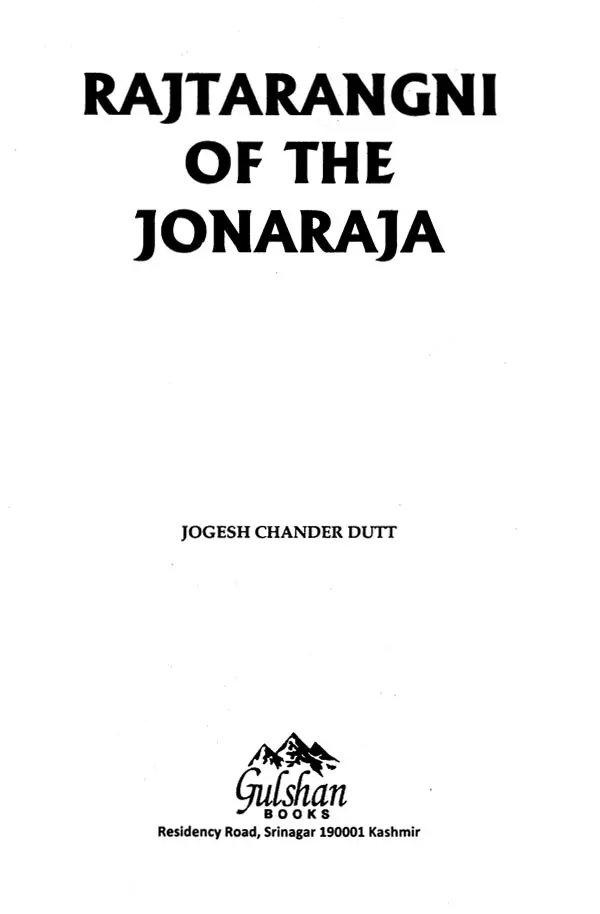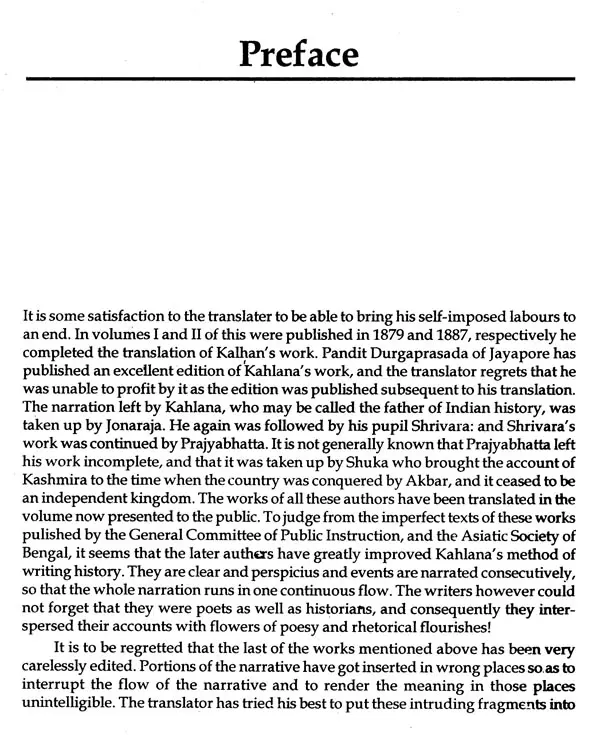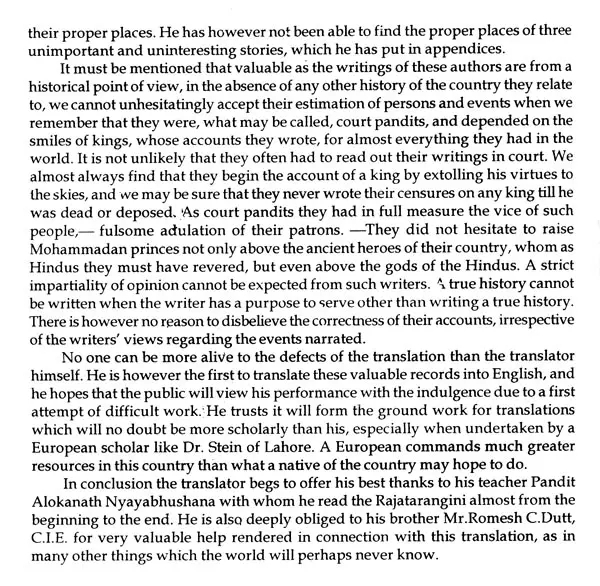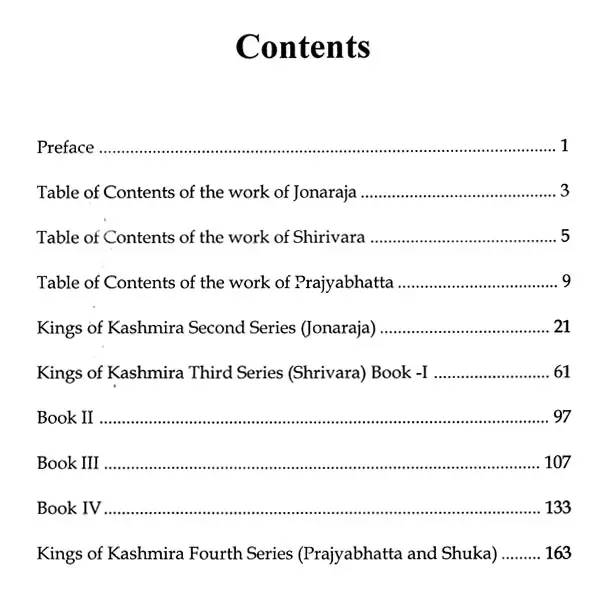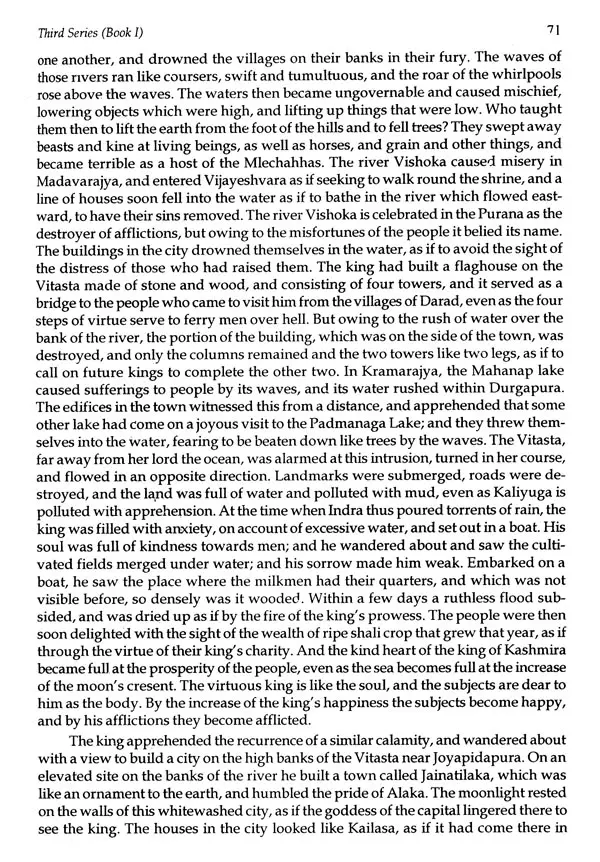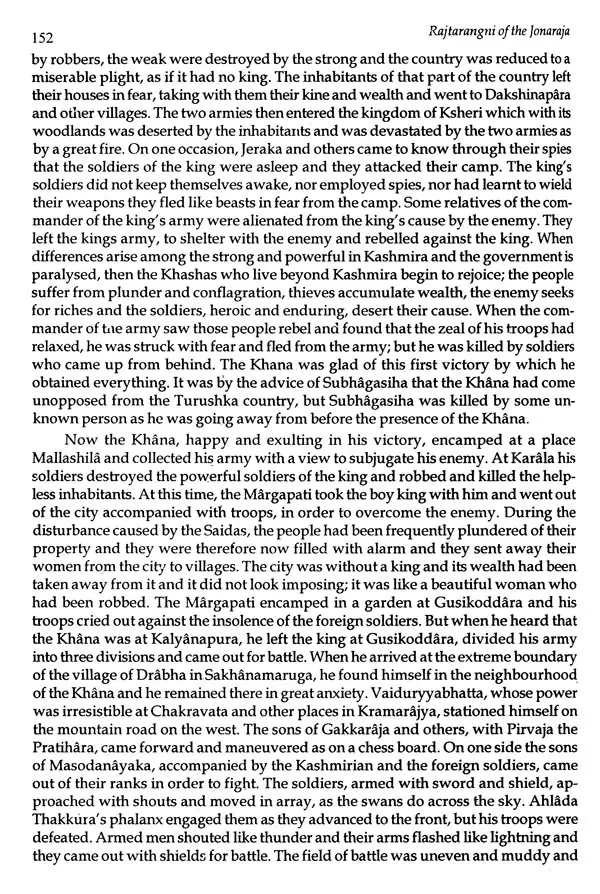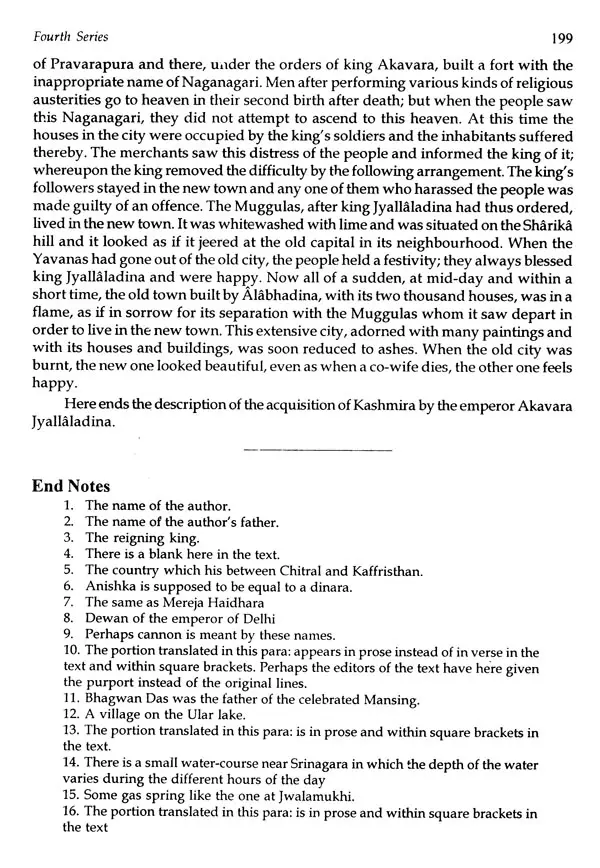
Rajtarangni of The Jonara
Book Specification
| Item Code: | UAI714 |
| Author: | Jogesh Chander Dutt |
| Publisher: | Gulshan Books, Kashmir |
| Language: | English |
| Edition: | 2009 |
| ISBN: | 9788183390750 |
| Pages: | 200 |
| Cover: | HARDCOVER |
| Other Details | 10.00 X 7.00 inch |
| Weight | 500 gm |
Book Description
No one can be more alive to the defects of the translation than the translator himself. He is however the first to translate these valuable records into English, and he hopes that the public will view his performance with the indulgence due to a first attempt of difficult work. It is to be regretted that the last of the works mentioned above has been very carelessly edited. Portions of the narrative have got inserted in wrong places so as to interrupt the flow of the narrative and to render the meaning in those places unintelligible. The translator has tried his best to put these intruding fragments into their proper places.
He has however not been able to find the proper places of three important and uninteresting stories, which he has put in appendices. It must be mentioned that valuable as the writings of these authors are from a historical point of view, in the absence of any other history of the country they relate to, we cannot unhesitatingly accept their estimation of persons and events when we remember that they were, what may be called, court pundits, and depended on the smiles of kings, whose accounts they wrote, for almost everything they had in the world. It is not unlikely that they often had to read out their writings in court. We almost always find that they begin the account of a king by extolling his virtues to the skies, and we may be sure that they never wrote their censures on any king till he was dead or deposed. A strict impartiality of opinion cannot be expected from such writes. A true history cannot be written when the writer has a purpose to serve other than writing a true history. It must be mentioned that valuable as the writings of these authors are from a historical point of view, in the absence of any other history of the country they relate to, we cannot unhesitatingly accept their estimation of persons and events when we remember that they were, what may be called, court pundits, and depended on the smiles of kings, whose accounts they wrote, for almost everything they had in the world. It is not unlikely that they often had to read out their writings in court. We almost always find that they begin the account of a king by extolling his virtues to the skies, and we may be sure that they never wrote their censures on any king till he was dead or deposed. A strict impartiality of opinion cannot be expected from such writes. A true history cannot be written when the writer has a purpose to serve other than writing a true history.
Book's Contents and Sample Pages
